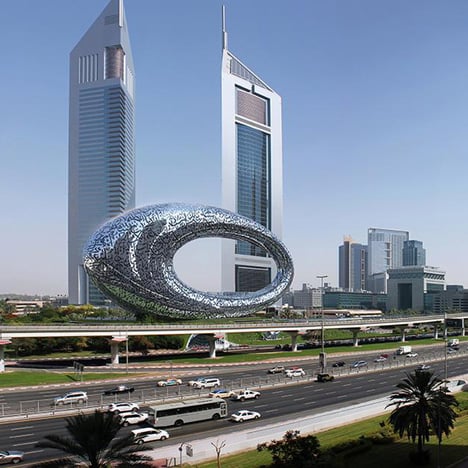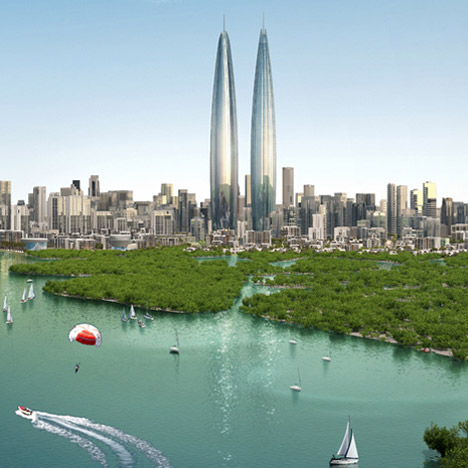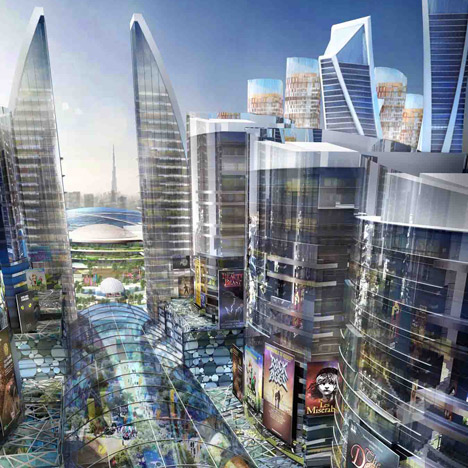Dubai experiencing "boom 2.0" as construction projects soar
Dubai is undergoing its "next wave of development" after bouncing back from the 2008 financial crisis, according to architects in the region.
"Wherever you look at the moment in Dubai, you see a lot of ongoing construction," said architect Richard Wagner, who has worked in the city for almost a decade. "We've gone through bust 1.0, now we're into boom 2.0."
Dubai's return to economic growth after the crash is fuelling architecture and engineering projects across the United Arab Emirates city.

These include the construction of a giant canal through the city, which is requiring several road bridges to be built and the reconfiguration of major service pipes.
Plans for the world's tallest twin towers, an underwater hotel and a climate-controlled mega resort have also been announced.
An entirely new design district, which is known as D3 and is where Wagner's firm Wanders Wagner Architects is now based, opened earlier this year. The second phase of the development includes a dedicated creative village designed by Foster + Partners – due to start work next year.
"The city has grown up, it's come along way," said Wagner, speaking to journalists on a tour of the city during the inaugural Dubai Design Week. "It's no longer just a gold rush attitude out here any more, it's also a place for real people to settle down, live and work."

Dubai began as an ancient trading post and was a centre for pearl diving. The city boomed after the discovery of oil in the 1960s, but aimed to reposition itself as a global finance hub and tourist destination when reserves ran dry.
However, the financial crash of 2008 halted many of the ambitious building and infrastructure projects – leaving many towers half-built and highways unfinished.
The city had to be bailed out by neighbouring Emirate, Abu Dhabi, which led to the renaming of the world's tallest building – the SOM-designed Burj Khalifa – after its Emir.
Now the economy has picked up again, this new wave of construction is being undertaken with more caution. Many major projects remain on hold, including The Universe and Dubai Exhibition City.

Wagner believes the break has given Dubai a chance to take stock and plan its development more carefully.
"The crisis, as bad as it was for many people, gave the city a little breather – some time to actually rethink everything," he said. "Coming out of it, the city was all of a sudden equipped with much more capacity and ready for a next wave of development, and that's what we're in right as this moment."
Dubai Design Week runs from 26 to 31 October 2015.